-
Anthony Vidler. Towards Superarchitettura
In collaboration with Aldo van Eyck and later with lyricists and situationists, Constant worked for a number years imagining architecture and urbanism that would respond to the physical and functional needs of the environment, based on the gypsy camps and migrant communities in post-industrial society. New Babylon remains an intense humanist experiment between a broad group of visionary projects by artists and architects involved in the revolt against alienating and monotonous environments in post-war reconstruction. Some these projects were utopian, for instance Nicolas Schöffer’s Cybernetic City, Mobile Architecture by Yona Friedman, the Mobile City by Iannis Xenakis and Archigram’s Plug-in City; while others were dystopian, such as Archizoom’s No-Stop City, or the Continuous Monument by Superstudio. Some, however, were part of the call by critic Reyner Banham to “invent ‘other’ architecture”. Today we can see the impact of these visions on divergent architects like Rem Koolhaas, Bernard Tschumi and Leon Krier, yet no contemporary architect has opened up a space quite like Constant’s.
-
José Miguel de Prada Poole, José Pérez de Lama, Izaskun Chinchilla and Ethel Baraona. Another City for Another Life
New Babylon responded to the pressing need to find urgent answers to mass and global urban growth, in addition to tackling the logic of alignment and privatisation in the contemporary city. This round-table discussion, which takes its title from a text by Constant, brings together four architects that have addressed these challenges in different ways: José Miguel de Prada Poole, through the city that instantly took shape in the ephemeral mega-structures of leisure in the 1968 environment; José Pérez de Lama, with the overflow of architecture into the convergence of digital technology, new social movements and urban territory; and Izaskun Chinchilla’s concept of organic prototypes and mechanisms conceived through play and participation. The table will be moderated by editor and critic Ethel Baraona.
![Constant. New Babylon Nord [Nueva Babilonia norte], (detalle). Plano, 1958 © Constant, VEGAP, Madrid, 2016](https://recursos.museoreinasofia.es/styles/large_landscape/public/Actividades/babylon.jpg.webp)
Held on 17 Feb 2016
New Babylon (1956–1974) is a networked city project conceived by the Dutch artist and architect Constant Nieuwenhuys for the “total fulfilment of life”, an approach to urbanism based on the freedom of the individual through the power of play and creativity. This activity, which marks the end of the retrospective in the Museo devoted to Constant, examines this total artwork’s place in the utopian urbanism that followed World War Two through a lecture by Anthony Vidler and a round-table discussion featuring participation from José Miguel de Prada Poole, Izaskun Chinchilla, José Pérez de Lama and Ethel Baraona.
In the lapse of almost half a century since this last great utopia of European art – outlined by Constant in maquettes, photomontages, planimeters and films - numerous questions still arise, and aim to be addressed in this activity: Where is Constant’s place in the post-war urbanism related to contemporary proposals such as those from the Independent Group, Yona Friedman and Le Corbusier, among others? What is the flipside today, and how can it keep up its ability to break ground in an age when technological networks are paradoxically inseparable from the more sophisticated forms of control and nomadism is associated with uncertainty as a class condition?
In collaboration with
The Netherlands Embassy, COAM and Fundación COAM
Organised by
Museo Reina Sofía
In collaboration with

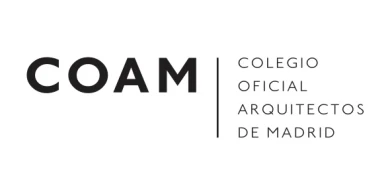
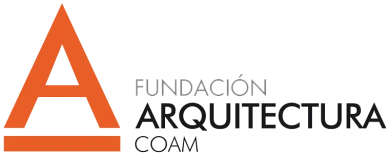
Participants
Ethel Baraona. Editor, critic and curator. Together with César Reyes, she is the co-founder of dpr-barcelona, a research studio and independent publishers, and editor of Quaderns d’arquitectura i urbanisme.
Izaskun Chinchilla. Architect. Since 2001 she has directed her own studio, Izaskun Chinchilla Arquitectos, and her work has received awards at various international conferences and competitions. In 2014 she won the competition City of Dreams for her pavilion design in Governors Island (New York), which used recycled material and was built collectively. She is also a professor and researcher at Bartlett School (University College London).
José Pérez de Lama. Architect and professor at the Higher Technical School of Architecture at the University of Seville. Between 2001 and 2011 he was part of the group hackitectura.net (together with Sergio Moreno and Pablo de Soto). He has published and edited Devenires ciborg. Arquitectura, Urbanismo y Redes de Comunicación (2006), WikiPlaza. Request For Comments (2011) and Yes We Are Open! Fabricación digital, tecnologías y cultura libres (2014).
José Miguel de Prada Poole. Architect and professor of Architectural Design, Industrial Design for Housing and Emergency Architecture at ETSAM (the Polytechnic University of Madrid). In 1975 he won the National Architecture award, and was also a researcher at the Center for Advanced Visual Studies and visiting professor at the MIT in Cambridge (Massachusetts, USA) between 1980 and 1982. In 1968 he devised the Ciudad instantánea (Instant City) in Ibiza and in 1972 the space for the Pamplona Encounters.
Anthony Vidler. Architectural historian and theorist. He is dean and professor at the Irwin S. Chanin School of Architecture (2002–2012), and visiting professor at Yale and Princeton Universities, among numerous others. His publications include Histories of the Immediate Present: Inventing Architectural Modernism (2011), Architecture between Spectacle and Use (2008), Warped Space: Art, Architecture, and Anxiety in Modern Culture (2000), The Architectural Uncanny: Essays in the Modern Unhomely (1992) and The Writing of the Walls. Architectural Theory in the Late Enlightenment (Princeton: Princeton Architectural Press, 1987).
Más actividades

Difficulty. Forms and Political Effects of Deviation in Writing and Contemporary Art
23 February – 14 December 2026 – Check programme
Difficulty. Forms and Political Effects of Deviation in Writing and Contemporary Art is a study group aligned towards thinking about how certain contemporary artistic and cultural practices resist the referentiality that dominates the logics of production and the consumption of present-day art. At the centre of this proposal are the concepts of difficulty and deviation, under which it brings together any procedure capable of preventing artistic forms from being absorbed by a meaning that appears previous to and independent from its expression. By ensuring the perceptibility of their languages, difficulty invites us to think of meaning as the effect of a signifying tension; that is, as a productive and creative activity which, from the materiality of art objects, frees aesthetic experience from the representational mandate and those who participate in it from the passiveness associated with tasks of mimesis and decoding.
The economy of the referential norm translates the social logic of capitalism, where insidious forms of capturing subjectivity and meaning operate. In the early 1980s, and adopting a Marxist framework, poet Ron Silliman highlighted how this logic entailed separating language from any mark, gesture, script, form or syntax that might link it to the conditions of its production, rendering it fetichised (as if without a subject) and alienating its users in a use for which they are not responsible. This double dispossession encodes the political strategy of referential objectivity: with no subject and no trace of its own consistency, language is merely an object, that reality in which it disappears.
The political uses of referentiality, more sophisticated today than ever before, sustain the neoliberal-extractivist phase of capitalism that crosses through present-day societies politically, economically and aesthetically. Against them, fugitive artistic practices emerge which, drawing from Black and Queer studies and other subaltern critical positions, reject the objective limits of what exists, invent forms to name what lies outside what has already been named, and return to subjects the capacity to participate in processes of emission and interpretation.
Read from the standpoint of artistic work, the objective capture of referentiality may be called transparency. Viewed from a social contract that reproduces inequality in fixed identity positions, transparent in this objectivity are, precisely, the discourses that maintain the status quo of domination. Opposite the inferno of these discourses, this group aims to collectively explore, through deviant or fugitive works, the paradise of language that Monique Wittig encountered in the estranged practices of literature. For the political potency of difficulty — that is, its contribution to the utopia of a free language among equals — depends on making visible, first, its own deviations; from there, the norm that those deviations transgress; and finally, the narrowness of a norm which in no way exhausts the possibilities ofsaying, signifying, referring and producing a world.
From this denouncement of referential alienation, fetishisation and capture, Difficulty. Forms and Political Effects of Deviation in Writing and Contemporary Art turns its attention to the strategies of resistance deployed by contemporary artists and poets. Its interest is directed towards proposals as evidently difficult or evasive as those of Gertrude Stein, Lyn Hejinian, Theresa Hak Kyung Cha, Kameelah Janan Rasheed, Kathy Acker, María Salgado and Ricardo Carreira, and as seemingly simple as those of Fernanda Laguna, Felix Gonzalez Torres and Cecilia Vicuña, among other examples that can be added according to the desires and dynamics of the group.
The ten study group sessions, held between February and December, combine theoretical seminars, work with artworks from the Museo Reina Sofía’s Collections and exhibitions, reading workshops and public programs. All these formats serve as spaces of encounter to think commonly about certain problems of poetics — that is, certain political questions — of contemporary writing and art.
Difficulty. Forms and Political Effects of Deviation in Writing and Contemporary Art inaugurates the research line Goodbye, Representation, through which the Museo Reina Sofía’s Studies Directorship seeks to explore the emergence of contemporary artistic and cultural practices which move away from representation as a dominant aesthetic-political strategy and redirect their attention toward artistic languages that question the tendency to point, name and fix, advocating instead for fugitive aesthetics. Over its three-year duration, this research line materializes in study groups, seminars, screenings and other forms of public programming.

CLINIC 2628. A Community of Writing and Research in the Arts
February – October 2026
Clinic 2628 is a project which supports and brings together writings which stem from the intention to offer a space and sustainable time for research work in art and culture. Framed within an academic context which is increasingly less receptive to the forms in which thinking happens and is expressed, the aim is to rescue the academic from its neoliberal trappings and thus recover the alliance between precision and intuition, work and desire. A further goal is to return writing to a commons which makes this possible through the monitoring of processes and the collectivisation of ideas, stances, references and strategies.
The endeavour, rooted in a collaboration between the Museo Reina Sofía’s Studies Directorship and the Artea research group, via the i+D Experimenta project, is shaped by three annual editions conceived as spaces of experimentation, discussion and a demonstration of writings critical of what is put forward by today’s academia.
What forces, forms and processes are at play when writing about art and aesthetics? In academia, in museums and in other cultural institutions, the practice of writing is traversed by productivist logics which jeopardise rhythms of research and experimentation. The imposition of both scientism inherent in the structure of “the paper” and the quantifying of results which demand a criterion of quality and visibility sterilise and smoothen, from the outset, the coarseness that is particular to writing understood from the concrete part of language: phonic, graphic, syntactic and grammatical resistance connecting the language user to the community the language unites and activates. They also sterilise the roughness enmeshed in the same desire to write, the intuitive, clear and confusing pathways that once again connect the writer to those reading and writing, participating in a common good that is at once discovered and produced.
The progressive commercialisation of knowledge propelled by cognitive capitalism moves further away from the research and production of knowledge in artworks and artistic languages and practices. The work of curators and archive, criticism, performances and essays formerly saw a horizon of formal and emotional possibilities, of imagination that was much broader when not developed in circumstances of competition, indexing and impact. Today, would it be possible to regain, critically not nostalgically, these ways; namely, recovering by forms, and by written forms, the proximity between art thinking and its objects? How to write in another way, to another rhythm, with no more demands than those with which an artwork moves towards different ways of seeing, reading and being in the world?

Cultural Work
Thursday, 12 February 2026 – 5:30pm
This series is organised by equipoMotor, a group of teenagers, young people and older people who have participated in the Museo Reina Sofía’s previous community education projects, and is structured around four themed blocks that pivot on the monstrous.
Session number two looks to approach film as a place from which cultural work is made visible and processes of production engage in dialogue with artistic creation. From this premise, the session focuses on exploring how audiovisual content is produced, assembled and distributed, from the hands that handle the images to the bodies that participate in its circulation. The aim is to reflect on the invisible effort, precarity and forms of collaboration that uphold cultural life, that transform the filmic experience into an act that recognises and cares for common work.
![Basel Abbas y Ruanne Abou-Rahme, At Those Terrifying Frontiers Where the Existence and Disappearance of People Fade Into Each Other [En esas fronteras aterradoras donde la existencia y la desaparición de personas se disuelven entre sí], 2019](https://recursos.museoreinasofia.es/styles/small_landscape/public/Colecci%C3%B3n/abbasabourahme.png.webp)
Gaza and Aestheticide
Tuesday February 10, 2026 – 16:00 h
This seminar examines the systematic destruction of Palestinian collective sensibility — what we might call “aestheticide” — that has accompanied Israel’s genocide and ecocide in Gaza, and considers the conditions of artistic practice in its aftermath. Over more than two years, the demolition of universities, archives, museums, and libraries has not only erased cultural and intellectual infrastructure but has also targeted the very possibility of representation itself. The destruction of a people has been accompanied by the destruction of their image, their history, and their capacity to be known: reportage, scholarship, and cultural memory have been deliberately undermined, with media institutions, universities, and museums often complicit in this repression. Gaza consequently functions as a rehearsal space for a possible global future — of fascism, post-liberal authoritarianism, militarized borders, and AI-enabled warfare —, a laboratory for an emerging world order. What, then, becomes of critical analysis and resistance under these conditions? And what becomes of aesthetics and politics?
This three-hour seminar engages in dialogue with a broader line of work on the climate emergency and decolonial perspectives developed within the Museum of the Commons project (2023–2026) of the L’Internationale network, of which the Museo Reina Sofía is a member; as well as with some of the questions that animate the study group Aesthetics of Peace and Desertion Tactics. Finally, it is also embedded in a wider strategy of support for and commitment to the artistic and discursive practices of Palestinian artists and cultural practitioners, most clearly reflected in the TEJA network.
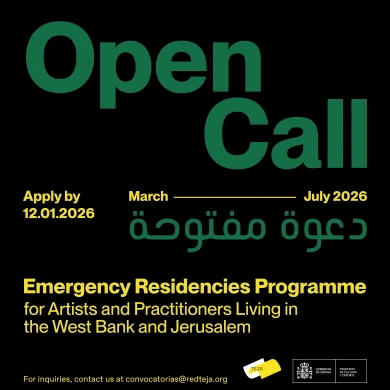
TEJA 2026. Open Call for Emergency Art Residencies
Proposal submission until 12 January, 2026
TEJA / Red de espacios culturales en apoyo a situaciones de emergencia [Network of Cultural Spaces in Support of Emergency Situations] has the mission to promote transnational cooperation by offering temporary art residencies to artists and cultural practitioners who find themselves in complex socio-political situations in their countries of origin. During their stay in Spain, residents receive accommodation, legal and psychological counseling, and access to a network of organizations and professionals with whom they can share, develop, and continue with their creative projects. The goal is to provide a safe and stimulating environment where artists can continue their work despite adverse circumstances and generate dialogue spaces that ensure freedom of expression through joint activities both in Spain and with international collaborators.
During 2026, TEJA hosts three new residencies, each lasting three months, dedicated to supporting artists and cultural practitioners residing in the West Bank and Jerusalem. In addition, in the second half of the year, TEJA hosts three additional residencies for Gazan artists, which are offered by invitation (as Spain is currently unable to facilitate evacuations from Gaza, these invitations are coordinated through France). These residencies aim to provide a stable, creative environment and foster artistic exchange in the face of ongoing adversities. Through this new program, TEJA reaffirms its commitment to amplifying Palestinian voices and empowering artists as they navigate these turbulent times.
The selection is carried out by the TEJA network in close collaboration with each hosting partner. This year the hosting partners are: La Escocesa (Barcelona), hablarenarte / Planta Alta (Madrid), Espositivo (Madrid), Institute for Postnatural Studies (Madrid), Casa Árabe (Córdoba). The selection prioritizes the artist’s personal and professional situation first, and then the alignment with the practices and themes of the hosting spaces. Proposal submission deadline is January 12th, 2026, 23:59 h.

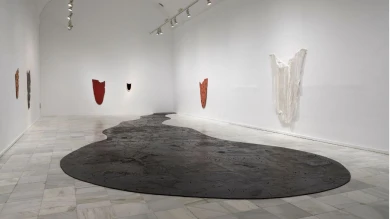
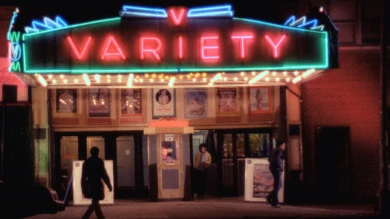
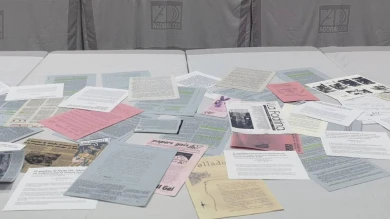
![Miguel Brieva, ilustración de la novela infantil Manuela y los Cakirukos (Reservoir Books, 2022) [izquierda] y Cibeles no conduzcas, 2023 [derecha]. Cortesía del artista](https://recursos.museoreinasofia.es/styles/small_landscape/public/Actividades/ecologias_del_deseo_utopico.jpg.webp)
![Ángel Alonso, Charbon [Carbón], 1964. Museo Reina Sofía](https://recursos.museoreinasofia.es/styles/small_landscape/public/Actividades/perspectivas_ecoambientales.jpg.webp)